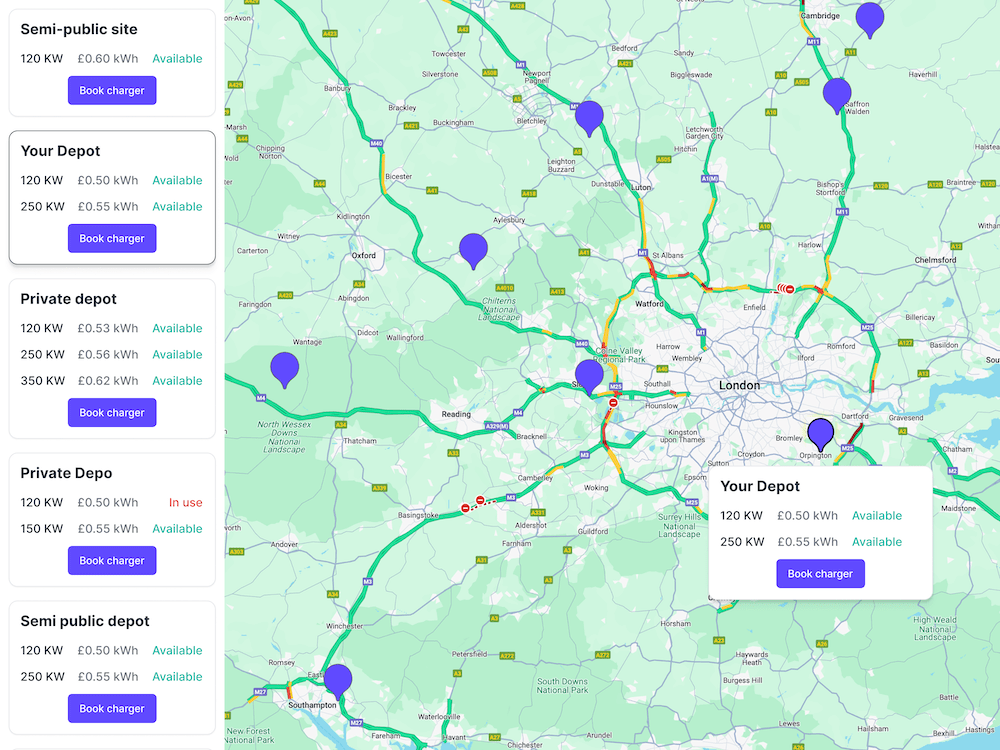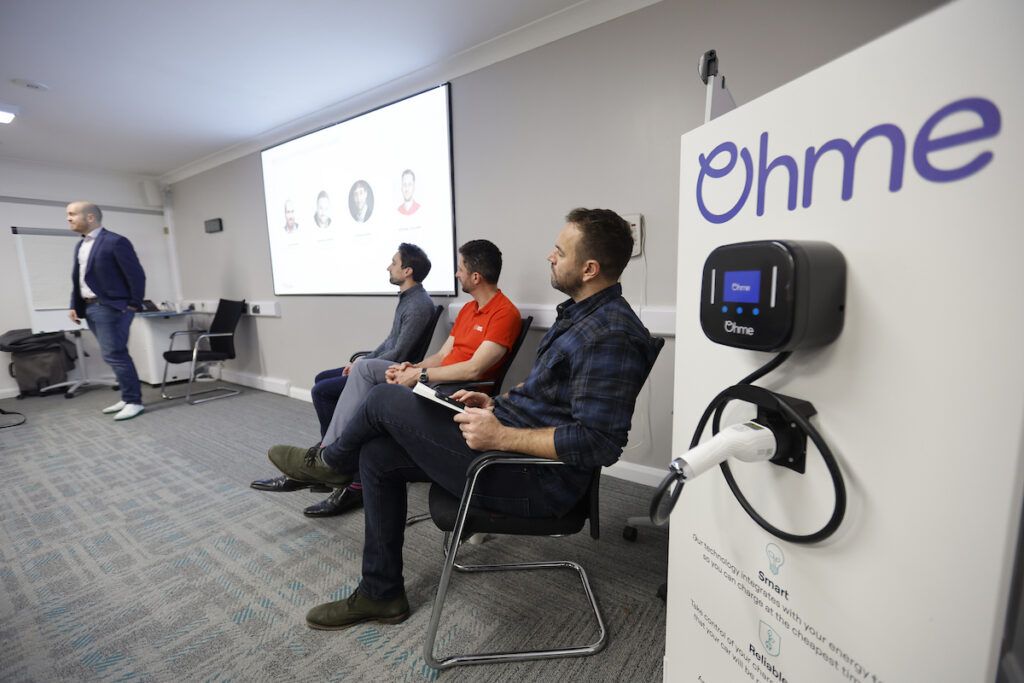Driven by regulation, sustainability goals and the potential to unlock operational efficiencies, the electric vehicle revolution is gaining momentum in the commercial sector. FPS takes a look at progress.
While many depots are investing in their own charging facilities, the reality is that these valuable assets can require significant financial capital but are then often under-utilised. This presents a unique opportunity for collaboration – shared charging infrastructure.
Shared charging infrastructure between operators is a logical response to some critical constraints:
- The capital cost of charging infrastructure for an individual entity.
- Land availability or electrical capacity constraints that make infrastructure
installation difficult for some. - The perception that charging infrastructure is a critical bottleneck to faster
adoption of electric commercial vehicles in terms of:
a. Pace of rollout and geographic coverage for commercial vehicles
b. Public charger pricing/ impact on business case
c. The interaction of range concerns with the above two factors.
Whilst the desire to share infrastructure among like-minded operators is demonstrably strong and growing, many ‘host’ depots encounter practical complexities that can, at worst, present barriers to adoption.
FPS has been working with diverse fleets such as the John Lewis Partnership, The Welch Group, and Nestlé to understand their real world practical and operational challenges. Together we have developed software
solutions that give operators the confidence to proceed, with suitable protections, with infrastructure sharing.
Before we look at shared charging challenges and solutions, we should reflect on the attainable benefits – by adopting a software-supported approach to infrastructure sharing – depot-based operators can:
- Generate additional revenue from under-utilised charging infrastructure.
- Contribute to a more resilient and efficient commercial EV charging network, by
providing reliable, dedicated charging opportunities transparently and creating
opportunities for new electric routes. - By adopting cost + pricing, reduce the overall cost of out-of-depot charging for
commercial fleets. - Themselves benefit from such a network when enroute charging is needed.
We set out below a series of observed challenges and how FPS resolves pain points identified by our customers:
| Challenge | Solution | |
| 1. | Protecting your own operations How do you allow third-party access without disrupting your core business and fleet movements? | Define a baseline of availability, based on when chargers are normally available. Thereafter define a process for making ad-hoc changes as required. |
| 2. | Administrative burden Managing bookings, payments, and site access for external users can quickly become an overwhelming administrative task. | FPS’ automated system provides for: • Standardised emails from the booking system with 1 click approve / deny links. • Visibility for gate staff of the vehicles they should expect. • Automated generation of invoicing data |
| 3. | Contractual complexities The necessity for creation of new agreements for charger use with multiple organisations can be a time consuming legal and logistical headache. | FPS simplifies this by acting as an intermediary, thereby avoiding a many to-many contracting matrix. |
| 4. | Ensuring fair payment How do you accurately track energy consumption and ensure timely payment from third parties? | FPS Operate – or any other OCPP friendly charger back office with a booking system – will reconcile charging session with bookings automatically to reduce invoicing queries. |
| 5. | Health, safety, and compliance Ensuring the safety of external drivers on your site and maintaining adherence to site-specific rules is paramount. | By defining a process encapsulated in a standardised site document that is integrated into the booking system, the automated booking system ensures that fleets agree to comply with site requirements before confirming a booking. |
| 6. | Visibility and marketing How do third party fleets even know your chargers exist and are available for use? | Sites can be listed on a fleet friendly charger map, with a range of filters making it easy to find chargers with appropriate location, power, price and availability. |
| 7. | Simple control How do you easily start and stop charging sessions for external users on your equipment? | There are various options available – customer RFID, issued guest RFID, systemised auto-charge or control via the web app. |
Effective infrastructure sharing doesn’t mean simply opening your depot gates and adding a payment terminal. It means having a smart system that enables you to be in full control of your depot, with the benefit of full automation and alignment with your business. Think of it as a single source of truth within an interoperable solution.
Using its extensive expertise in commercial vehicles, technology solutions development, electrification and commercial fleet operations, and working alongside operators, Flexible Power Systems has designed “FPS Book” specifically for commercial vehicle fleets.
This solution allows them to easily find and book shared infrastructure for their vans or eHGVs. Furthermore, our “FPS Operate” platform integrates with the depot environment to give fleets offering shared charger infrastructure total control over charger availability, pricing and workflow management tools. Smart integration for smart operations.
Our conversations with fleets consistently reveal a powerful truth: infrastructure sharing holds immense potential to accelerate EV adoption, enhance operational resilience, and improve the business case for EV adoption further. So long as implementation recognises the particular challenges of each fleet and engages appropriate solutions.
Indeed, the implications of not embracing this collaborative approach are often overlooked and can significantly hinder the broader transition to electric through:
• The opportunity cost of underutilised assets, with loss of potential revenue as well as financial inefficiency leading to slower fleet electrification.
• Operational vulnerabilities reflected in range anxiety and restricted routes, increased operational costs (public chargers) and slower EV adoption.
• Duplication of effort and inefficient resource allocation, including related to grid capacity and connections.
• Lost productivity as drivers search for appropriate facilities.
The future of commercial EV charging is collaborative. By leveraging smart software solutions, we can overcome the complexities of sharing and unlock the immense potential of our collective infrastructure, driving forward the electrification of commercial transport for the benefit of all.
We’ll be at Transport + Energy’s Fleet Electrification Forum, if you’d like to talk to us about our experience of infrastructure sharing and the comprehensive solution that FPS has developed.












